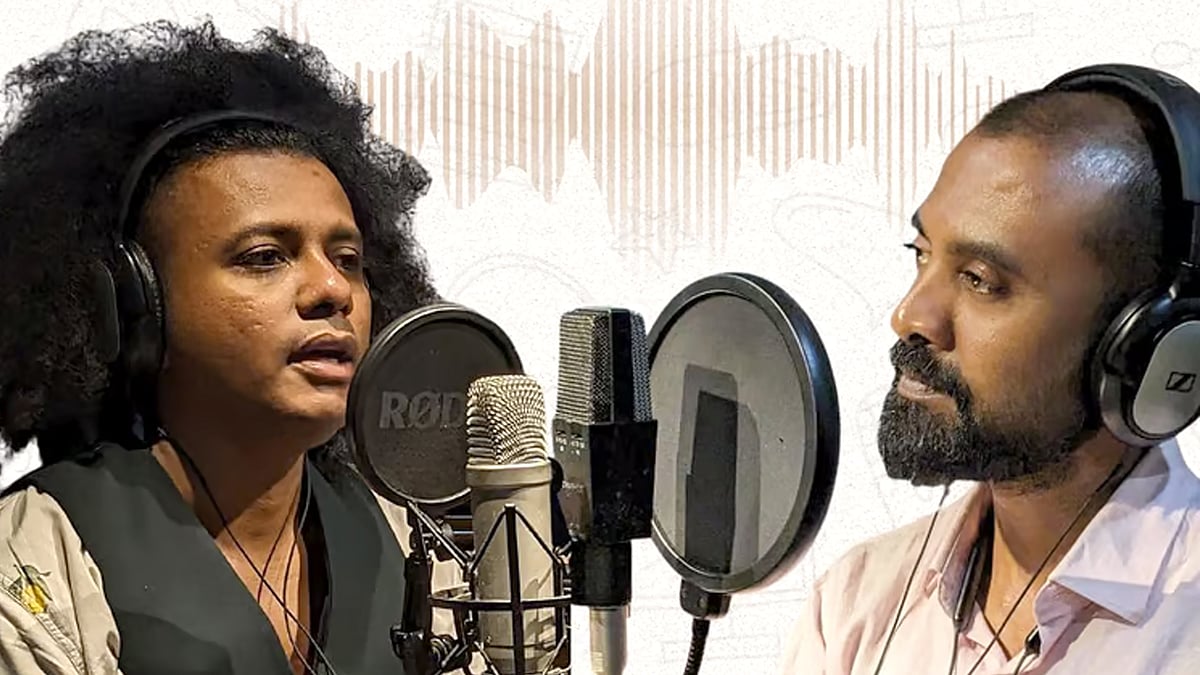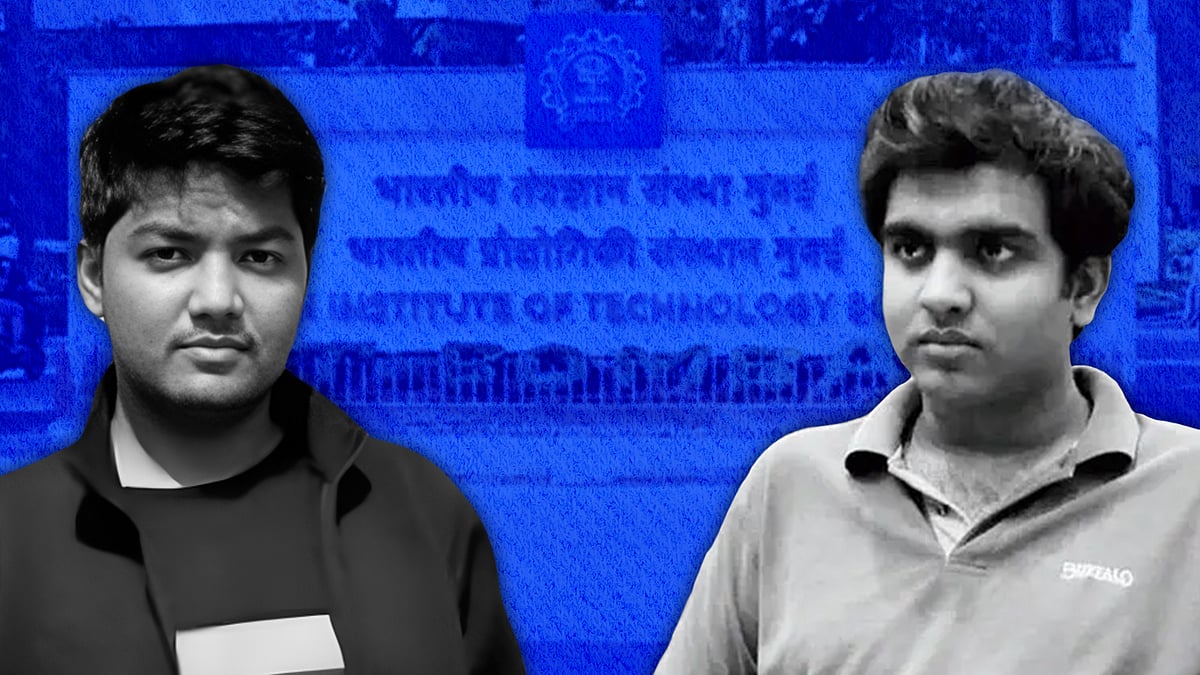Rohith Vemula’s memory lives on, but promise of casteism-free campuses forgotten
Indian universities have institutionalised caste blindness and normalised exclusionary structures in higher education.
Rohith Vemula would be celebrating his 35th birthday had he been truly cared for, loved and treated well by the caste-privileged rulers of Indian academia. He was desperate to start a life without pain and emptiness but eight years ago in this month, Rohith was institutionally murdered.
In the letter he left behind, which has come to be known as ‘from shadows to stars’, he lamented that the spectre of caste has reduced Dalits to their ‘immediate identity and nearest possibility’.
His death triggered one of independent India’s biggest Dalit uprisings, but the big question remains whether his quest for an egalitarian campus has been achieved.
Post Rohith’s institutional murder, the academic world witnessed a massive surge in discussions around caste discrimination and social inclusion. But slowly the status quo returned. Institutional caste murders in IITs, IIMs, and central and state universities once again got subdued responses. The collective caste conscience of Indian academia has quietly come to terms with caste-based discrimination.
Everyday caste-based humiliations in classrooms and within premises of campuses are normalised to such an extent that they always need to be substantiated through death. Despite the Indian Constitution abolishing the practice of untouchability, so-called post-colonial Indian academia has invented newer forms of oppression to carry out untouchability against marginalised students and scholars in academia.
Take for instance, the recent draft guidelines proposed by the University Grants Commission for de-reserving unfilled vacancies meant for SC, ST, and OBC job aspirants in higher education institutions.
The proposal said that a large number of vacancies remained unfilled because suitable candidates could not be found and argued for these vacancies to be filled with candidates from the general category.
A massive public outcry meant that no less than the Union minister of education Dharmendra Pradhan stepped in to clarify that not a single post will be de-reserved and there is no scope for ambiguity about reservations.
While this puts the latest controversy to rest, it does little to address why vacancies reserved for marginalised communities go abegging in so-called premier institutions.
Rohith’s organisation, the Ambedkar Students’ Association of the University of Hyderabad (ASA, UOH), in a scathing seven-page report last year, exposed the ‘Gross Discrimination in Marking Reserved Category Students in PhD Interviews at the University’.
“After filing a set of RTI applications, we found a clear pattern where students belonging to reserved categories are marked much lower than students belonging to unreserved categories in their interviews despite having similar marks in the entrance exam. The findings give an impression that the students were marked in the interviews deliberately as if to ensure that the general category seats are occupied exclusively by students belonging to the unreserved category,” the report stated.
The report further found chilling evidence of casteism in interviews. “The four Scheduled Caste category students who appeared in the interview for PhD in Material Engineering have been marked 0.3, 1.9, 2.1 and 8.4 out of 30. Seven out of eight faculties in the panel marked an SC student with zero marks. On what basis have seven faculties deemed a student completely unfit and denied even a single mark to a student while such treatment has not been meted out to any other student of any other category?”
ASA, UOH report concludes, “The data we have presented above makes it abundantly clear that caste is still alive and thriving in various forms in higher educational institutes.”
The casteist underbelly of state and central universities, IITs, IIMs, IISc, IISERs, medical institutions, law universities, NITs and so on have institutionalised caste blindness and normalised exclusionary structures in Indian higher education institutions. As a result, such structures produce and reinforce casteist micro-aggressions against historically marginalised students, scholars and professors.
Often, caste privileged students and teachers perpetuate micro-aggressions through polite body language which helps shroud their abhorrence towards the anti-caste and social justice discourse.
Caste privileged academics often go on a nostalgic trip and say that campuses earlier were not so disturbing, classrooms were silent, junior teachers respected senior teachers and such. What this actually means is that savarna gatekeeping in appointments was watertight; that campuses were not as outraged against caste supremacism; and that caste-based discrimination was practised with impunity. The anti-caste discourse threatens this convenient Brahminical hierarchical system in higher education.
Science, Technology, Engineering, and Mathematics or STEM institutions are traditionally centres for exclusion, in fact, graveyards for SC/ST students, scholars and professors.
IIT Bombay’s noted student organisation Ambedkar Periyar Phule Study Circle (APPSC) has often lampooned the premier institution, calling it the ‘Indian Institute of Upper castes’ for failing to ensure the mandatory representation of SC/STs in faculty recruitments and PhD selections.
In 2022, RTI data obtained by APPSC from nine IIMs exposed how SC/ST students were denied their rightful seats in the last five years after being shortlisted in the written entrance test. In 2022, APPSC IIT Bombay posted on X about how IITs are lying and hiding behind untruths.
The RTI report said that the five IIMs in 2022 did not admit a single SC candidate despite a high number of SC applicants. Eight IIMs did not admit a single ST candidate in the PhD course despite a large number of applicants from the community, and IIT Bombay violated reservation norms in PhD admissions for the academic year 2021-2022.
In fact, the recent controversial UGC draft ‘Guidelines for Implementation of the Reservation Policy of the Government of India in Higher Education Institutes, 2023’, has foregrounded the same casteist guidelines to address the growing violative negligence of reservation norms.
The UGC draft has, shrewdly, made backchannel provisions to de-reserve SC/ST/OBC vacant seats rather than taking harsh measures against non-compliance with reservation norms. It has no outline to take stringent measures against higher education institutions which falter on reservation norms in faculty appointments and PhD selections.
The UGC draft has outrageously promoted de-reservation policies rather than abolishing the de-reservation mechanism that empowers upper caste supremacism in higher education institutions. It does not ensure a framework to ensure strict and proportionately diverse PhD and faculty recruitment interview panels. It also needs to come up with a strong punishment system for individual professors violating reservation norms, and humiliating and harassing SC/ST candidates. UGC should devise a dedicated cell to oversee the violations of reservation norms in institutions of higher education and the Union government must form a dedicated empowered national body to monitor reservation compliance at all levels of every institution of higher learning.
To begin with, Indian universities must acknowledge caste and leave aside caste blindness as progressiveness because casteism is grossly under acknowledged in higher education institutions of India.
Anti-SC/ST/OBC reservation hate often transforms in universities into casteist Brahminical superiority that whitewashes the academic vulnerabilities of oppressed caste folks. The habitual refusal to acknowledge Brahminical caste in academia results in bullying, gaslighting and microaggressions.
Anti-Diversity, Equality and Inclusion sentiment has become a global phenomenon with race and caste supremacists shifting rightward. Over the decades, Brahminical savarna backlash towards anti-caste discrimination measures on campuses has led to the decentering of anti-caste dialogues and social justice pedagogies. In actuality, the battle for social inclusion and fair representation in academia must be fought by privileged caste academics, scholars and students.
Revolutionary research on caste privilege, upper-casteness, Brahmanness, and supremacism needs to be carried out to invert the Brahman savarna academic gaze.
Globally, we see a concerted attack on affirmative policies. Anti-reservation forces have been vehemently mainstreaming the narrative of reservation weakening merit to deny diversity, equality and inclusion. On the one hand, the US Supreme Court overturned race-based college admissions, and the BJP-led Union government brought a newly-invented EWS category for upper castes and categorically excluded SC/ST/OBCs when upper castes have never gone through the oppressive practises of untouchability like Scheduled Castes.
Students from privileged higher castes often ridicule well-to-do Dalits who avail reservation as undeserving, without acknowledging the basic reality that caste does not recognise economic status but social identity. I read students’ assignments where urban privileged students mostly conclude that India has progressed so much that caste does not matter anymore. It is infuriating to experience, even after so many years of teaching, institutionalised casteism. Little progress has been witnessed among students and professors from caste privileged sections of society.
The deliberate wilful ignorance of the evil of casteism in higher education campuses is hailed as modern and progressive to maintain the status quo of caste hierarchy in academia.
It is traumatising that even after the institutional caste murders of Rohith Vemula, Muthukrishnan, Fathima Latheef, Aniket Ambhore, Ayush Ashna, Anil Kumar, Uttam Mardi, and Darshan Solanki, higher education administrators and academia are at large yet to introduce entry-level introductory anti-caste course modules.
The question is, how long higher education controlling authorities and institutions will deliberately ignore the most dangerous ‘ism’ ie casteism in curricula and campus? When will the day come when oppressed Dalit students do not need to cope emotionally to resist casteism on campus in the absence of institutional support? When will marginalised SC/ST PhD research scholars get cooperation from upper caste research supervisors? When will incessant delays stop in the final submissions of PhDs and non-responses to the messages and emails of SC/ST PhD scholars? When will SC/ST research scholars not need to desperately seek the same community supervisors for intellectual research experience? How long will marginalised caste students, scholars and teachers have to carry the mental burden of caste on campus? When will upper caste Brahman savarna students, scholars and professors join in the collective everyday sharing of struggle to dispel stereotypes about Dalits, anti-caste politics and reservation?
To realise post-caste higher education campuses, Indian institutions of higher learning must periodically conduct anonymous online experience feedback among marginalised caste students, research scholars and professors to act and make sense of caste in academic spaces.
This report was republished from The News Minute as part of The News Minute-Newslaundry alliance. It has been lightly edited for style and clarity. Read about our partnership here and become a TNM Member here.
This report was published with AI assistance.
 What’s Your Ism? Suraj Yengde on caste and Christianity
What’s Your Ism? Suraj Yengde on caste and Christianity Stress, dropouts, suicides: Unravelling IIT’s casteism problem
Stress, dropouts, suicides: Unravelling IIT’s casteism problem